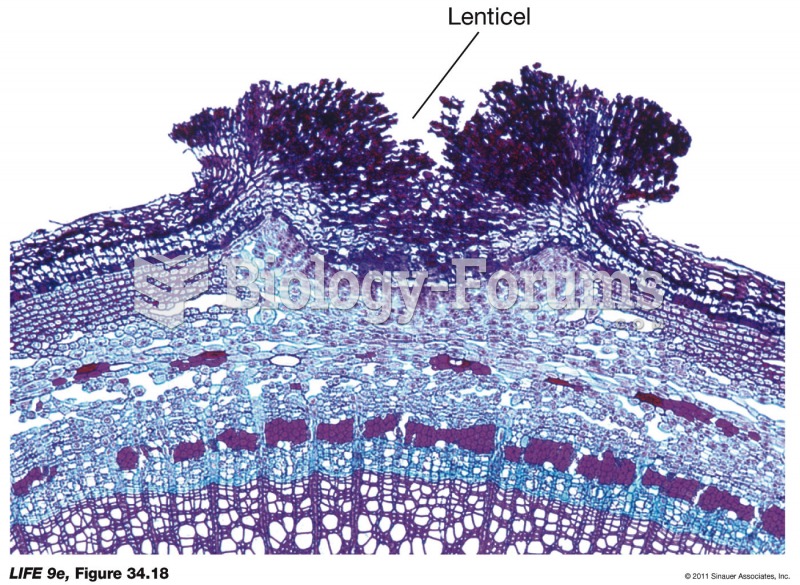|
|
|
Cytomegalovirus affects nearly the same amount of newborns every year as Down syndrome.
Multiple sclerosis is a condition wherein the body's nervous system is weakened by an autoimmune reaction that attacks the myelin sheaths of neurons.
The top five reasons that children stay home from school are as follows: colds, stomach flu (gastroenteritis), ear infection (otitis media), pink eye (conjunctivitis), and sore throat.
As of mid-2016, 18.2 million people were receiving advanced retroviral therapy (ART) worldwide. This represents between 43–50% of the 34–39.8 million people living with HIV.
GI conditions that will keep you out of the U.S. armed services include ulcers, varices, fistulas, esophagitis, gastritis, congenital abnormalities, inflammatory bowel disease, enteritis, colitis, proctitis, duodenal diverticula, malabsorption syndromes, hepatitis, cirrhosis, cysts, abscesses, pancreatitis, polyps, certain hemorrhoids, splenomegaly, hernias, recent abdominal surgery, GI bypass or stomach stapling, and artificial GI openings.
 Should we restore YellowstoneNationalPark, as our flagship National Park, to include the natural ...
Should we restore YellowstoneNationalPark, as our flagship National Park, to include the natural ...
 Action! Children love to talk about the actions of adults and animals, which provides a natural way ...
Action! Children love to talk about the actions of adults and animals, which provides a natural way ...





